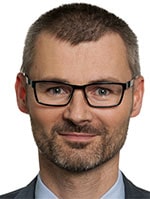Developer 2019 – Facts and Figures
Python is more popular worldwide than Java. Chinese developers are more optimistic than French or German developers. More than 50% of all developers wrote their first line of code at the age of 16 or younger. While toxic work environments tend to be a big problem for women, men find dealing with non-developmental tasks to be the biggest problem. And DevOps developers are generally the most satisfied with their tasks, they look comparatively rarely for new employers, which is also due to the good pay.
In 2019, Stack Overflow, the world-renowned online developer community, again conducted an annual survey on attitudes, technologies, methods and tools. More than 7,700 participants came from Germany, Austria and Switzerland took part. Below you will find a selection of the survey results that have just been published.
General information about the survey
The survey was conducted from 23 January to 14 February 2019. As in previous years, participants were addressed via Stack Overflow’s website, blog posts and emails, advertising and social media. As a thank-you, the participants received a so-called “Census” badge at the end of the survey. By displaying the silver badge in the profiles of the stack overflow users – more than 85% of the participants have an account in the community – additional participants should be encouraged to answer the survey completely.
88,883 software developers from 179 countries took part in the survey, compared to 101,592 from 183 countries in 2018. According to Stack Overflow, the decline in the number of participants is also due to sanctions imposed by the USA, which had blocked access to the survey for participants from Crimea, Cuba, Iran, North Korea and Syria.
On average, 23.3 minutes were spent on qualified answers to the questions, compared to 25.8 minutes in 2018. Approximately 400 responses were submitted but not included in the analysis, as respondents took less than three minutes to complete the survey. Many questions were displayed to participants based on their previous answers. The order of the answers offered was random. The blocks used to structure the questions also varied in order. Data from the 2018 survey was used to determine which technologies should be queried this year and which smaller or shrinking technologies should be removed.
Developers and demographics
- About 11% of the participants were female. The proportion of women in the survey is therefore relatively low.
- Many developers also write code outside working hours. About 80% of the respondents said that they also consider software development their hobby. This figure is practically unchanged from the previous year.
- Their First Line of Code was written worldwide by 19.6% at an age of 14-15 years. In Germany the age is exactly 14.5 years, in India 17.0 years and in Australia 14.2 years. Divided according to gender, girls start at the age of 16.9 years, boys at the age of 15.3 years and various developers at 14.3 years.
- The largest group of professional developers (41.0%) has less than 5 years experience. 26.9% develop software between 5 and 9 years, and 14.5% between 10 and 14 years.
- In Australia, not only is coding started early, but the average number of development years is also highest at 15.4. In Germany the figure is 12.9 years and in India 7.1 years. Maybe companies should pay more attention to the point of experience when outsourcing to India in the future?
- What qualifications do the developers have?
- Bachelor’s degree 49,1%
- Master’s degree 25,4%
- Doctoral degree 3,1%
- no formal education 0,5%
- 70% of the participants rated themselves better than the average in terms of performance and experience, 10% lower than the average. How does this look like in your company?
- 78.2% of developers in their families are considered to be the contact person for IT support questions.
- 81.3% of Chinese developers believe that their children will be better off than they are. Interestingly, the 996 system, which exists mainly in China, does not cause much concern. In the USA, 61.1% see a positive future for their children, in Germany it is 56.2% and in France it is the lowest in the world at 40.8%.
Developers and jobs
Developers work in companies of all sizes, from small to large. In the US, more software developers tend to work in larger companies than in the rest of the world. The more experienced a developer is, the more likely he is to work in a larger company.
- Worldwide, the largest share (21.2%) works in companies with 20 – 99 employees. 17.9% develop in companies with 100 – 499 employees. After all, 14.1% work in companies with more than 10,000 employees, and in companies with 2 – 9 employees it is 10.3%.
- The proportion of freelancers in the UK is 10.6%, significantly higher than in Germany (8.3%). The ratio to the previous year has thus remained roughly the same: 11.9% to 9.2%.
- In the USA 81.2% of developers work full-time, in India 75.1% and in Germany 73.1%.
- What is the share of part-time developers in different countries?
- India 1,9%
- UK 2,2%
- USA 3,8%
- Germany 11,7%
- In Germany, only 2.6% of developers are unemployed and looking for a new job. Many companies can tell you a thing or two about this. In India the figure is 11% – this could be one reason why there are relatively many applicants from India in Germany.
- The interviewees provided an average of three answers on the typification of their own developer role. The most frequent pairs were combinations of back-end, front-end and full-stack developers. The highly correlated pairs include database administrator and system administrator, DevOps specialist and site reliability engineer, academic researcher and scientist, and designer and frontend developer. About 50% of the respondents identify themselves as full stack developers, about 17% see themselves as mobile developers.
- Approximately 64% of the developers participate in open source projects at least once a year. Participation in open source projects varies by language. Developers working with Rust, WebAssembly and Elixir contribute to open source with the highest rates, while developers working with VBA, C# and SQL do so with about half of these rates.
- 86.8% have taught themselves a new language, framework or tool without attending a formal course. 60.1% attended an online course. And 43.6% received instruction on the job.
- On average, developers work 40.2 hours a week in Germany, 42.1 hours a week in the USA and 44.6 hours a week in Poland worldwide. Strangely enough, China does not appear in the list of countries.
And what about satisfaction, trust and payment?
- As noted in previous years, developers are generally more satisfied with their career than with their current job. Above all, managers, senior engineers and DevOps specialists are satisfied. Among the developers with the lowest job satisfaction are academic researchers, educators, scientists and designers.
- 40.0% say they are very satisfied with their career. 34.1% are very satisfied with their current job.
- 34.3% are satisfied with their career, 34.1% are satisfied with their current job.
- 5.1% are very dissatisfied with their career and 6.8% are very dissatisfied with their current work.
- 39.8% trust their managers very much, 41.2 trust them essentially and 15.6% do not trust them at all. The remaining balance of 3.4% has no managers.
- 19.6% are not sure if they need to become managers to earn more money. 29.2% believe this, 51.3% do not.
- 25.4% would like to become managers, 36.4% are still undecided and 33.3% do not want to act as managers. 4.9% are already managers.
And who is looking where for which jobs?
- In Germany, 9.0% of all developers are actively looking for a new job. In India it is 29.5% and in the USA 13.3%. Worldwide it is 15.2%.
- 32.0% are not interested in job offers in Germany and 54.7% are not actively looking for new opportunities, but are open for offers.
The differences between individual jobs and interest in new jobs vary marginally: For example, 15.6% of front-end developers are looking for a new employer, 14.6% of back-end developers and 14.2% of full-stack developers. These differences are negligible in practice. - For 32.4% of developers, the last employer change was less than 1 year ago. 26.8% changed employers 1 to 2 years ago. Unfortunately, the 2019 survey, unlike the 2018 survey, does not show a breakdown by country.
- 30.0% had to write code in the course of job interviews, 27.8% had to perform whiteboard coding and 19.3% had to solve a mental exercise. 24.3% were allowed to implement a project at home.
And which factors are particularly important for developers?
- For 54.1%, the languages, frameworks and technologies used are essential. 43.5% are looking for professional development opportunities. 15.0% focus on the industry in which they want to work. 52.9% of women consider the working environment and corporate culture to be the most important. For men, technical aspects such as languages and frameworks are most important (55.3%). After all, the working environment and corporate culture are in second place for men with 48.2%.
- Flexible working hours are similarly important for men (45.8%) and women (44.6%).
- There is one big difference when assessing the diversity of a company: For 19.6% of women this is an important factor, for men it is 5.6%. This makes diversity the least important factor for men.
- Remote work is important for about a third of the developers: men 31.9% and women 29.6%.
- In general, 43% of respondents say they never work remotely or work less than once a month on average. 24.5% work remotely for at least a few days a month, 9.0% slightly less than half a month. 12.0% say that they work almost all the time remotely. And for 5.2% it’s complicated – whatever that means in a particular case.
- In Germany, 64.1% of developers want to work in the office, 28.7% in the home office and 7.2% in coworking spaces.
- 41.8% consider a distracting work environment to be the biggest challenge at work; companies might want to rethink their planning for the next open-plan office. For 36.6%, meetings are the biggest productivity barrier. 33.6% say that the workload is too heavy with too few employees and 36.6% are missing management support. After all, 20.5% are annoyed about the time spent commuting.
Technologies, methods and tools
And what are the results of the survey in terms of technologies and methods? You can find a selection here:
- 23.6% of developers don’t do code reviews, and 7.6% do it just because they were told. After all, 68.8% actually see sense in code reviews.
- For 41.8%, unit testing is part of the lived process, 33.2% believe it should be used, and 4.4% are glad it is not used.
For the 7th consecutive year, JavaScript is the most widely used programming language (69.7%). HTML/CSS came second with 63.1%, followed by SQL with 56.5%, Python with 39.4% and Java with 39.2%. C# still comes in at 31.9% and Ruby at 8.9%.
jQuery is the most frequently used web framework by professional developers (48.3%). Angular/Angular.js with 32.4%, React.js with 32.3% and ASP.NET with 27.2% follow. Spring came in at 17.2% and Ruby on Rails at 8.4%. - Among the “other frameworks, libraries and tools” Node.js is ahead of .NET with 38.1% with 50.4% and .NET Core with 24.5% with .NET. MySQL wins the database race with 52.0% ahead of PostgreSQL with 36.3% and MS SQL Server with 34.4%. Oracle lands at 16.4% and thus still behind SQLite, MongoDB, Redis and MariaDB.
- Linux is ahead of Windows with 49.4% with 54.1%, followed by Docker with 34.9%, AWS with 29.5% and Android with 25.2%. MacOS comes to 23.8%, Raspberry Pi to 14.3% and Microsoft Azure to 13.0%. IBM Cloud or Watson still recorded 1.8% at the bottom of the league.
- When asked how respondents use containers such as dockers, about half responded that they do not use such technology today. Those who use containers are the most likely to use them in development.
- 80.0% do not use blockchain technology at all, although 29.2% believe it could change many aspects of our lives.
Conclusion
The number of participants rose from the first survey in 2011 to 2018. This development did not continue in 2019, but since the level of almost 89,000 participants is still significantly higher than in 2017 with 64,000 participants, Stack Overflow probably does not need to worry yet.
Despite the broad scope of the survey, it is clear that the results do not equally represent everyone in the developer community. The positive future forecast of only 40.1% in France and 73.4% from Iran at the same time presumably expresses the mood in the respective country, but the values may also be anomalies resulting from the low number of participants: 2,400 participants from France, 738 from Iran.
The “demographics” take up an extensive part of the survey, but why it is important which sexual orientation or which mental disposition developers have is not clear to me. Unfortunately some statements are missing, e.g. on the use of agile methods like Scrum or Kanban, which still existed in 2017 and 2018. Basically, the survey is great again this year. As always, browsing through the results is fun, especially as some results are surprising and question your own impressions.
Have fun reading the results.
Notes:
You can read the full results of the 2019 survey at https://survey.stackoverflow.co/2019.
Michael Schenkel has published more articles in the t2informatik Blog, including

Michael Schenkel
Head of Marketing, t2informatik GmbH
Michael Schenkel has a heart for marketing - so it is fitting that he is responsible for marketing at t2informatik. He likes to blog, likes a change of perspective and tries to offer useful information - e.g. here in the blog - at a time when there is a lot of talk about people's decreasing attention span. If you feel like it, arrange to meet him for a coffee and a piece of cake; he will certainly look forward to it!


